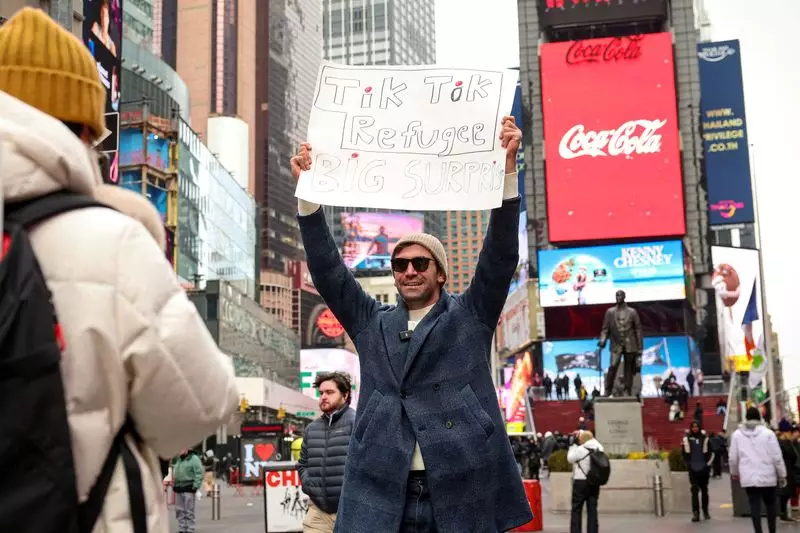The landscape of social media is fast-evolving, with applications morphing into integral parts of communication, marketing, and daily entertainment. TikTok has risen dramatically in the United States, entrancing a significant portion of the population, particularly the youth. However, the specter of a federal ban looms over the app, raising pressing questions about its sustainability and implications for connected businesses, creators, and American online culture.
A Roller Coaster of Anticipation and Anxiety
As the weekend unfolded, TikTok found itself at a critical juncture that could sever its crucial connection to U.S. users. The app’s recent statement indicated a potential shutdown unless the Biden administration assured major tech companies, including Apple and Google, that enforcement actions would not target them amidst the looming ban. Such uncertainty has set the TikTok community on edge, as a significant segment of American society—170 million users—navigates newfound anxiety over the potential loss of their beloved platform.
The White House’s dismissive response termed TikTok’s warnings as mere theatrics. Press Secretary Karine Jean-Pierre made it clear that the incoming Trump administration bore the responsibility of addressing these challenges. This could imply a contentious transition of power as critical issues linger—issues where significant market implications are at stake, affected by a complex web of geopolitical considerations and domestic policy.
Administering a Ban: Navigating Legal and Corporate Ramifications
Should TikTok’s access be halted, this event would mark an unprecedented moment in American digital history—the first major social media app to face a federal shutdown. The ban, rooted in national security concerns surrounding parent company ByteDance, emphasizes growing anxieties about foreign ownership of technology firms. The implications for TikTok are dire; they must either dissociate from their Chinese parent company or cease operations altogether.
Legal ramifications are also at play. The Biden administration has enacted a law that complicates the app’s status, with repercussions affecting not only TikTok but also companies allied with it. The potential for liability among these service providers looms large. Questions abound regarding whether entities like Apple and Oracle will ride out this storm or distance themselves from TikTok in anticipation of future regulatory challenges.
Amidst the uncertainty, TikTok users—primarily younger demographics—are proactively exploring alternatives. Rival platforms like RedNote are experiencing increased interest, showcasing how quickly social media trends can pivot in the face of potential bans. Likewise, established competitors such as Meta and Snap are benefitting from the apprehension surrounding TikTok, inciting speculation that they could capture the user base and advertising revenue TikTok may lose.
Marketing professionals reliant on TikTok’s advertising reach have also rushed to develop contingency strategies. The sense of urgency echoes throughout the industry, reminding stakeholders of the vulnerability of digital platforms and the rapidly shifting tides of user preferences.
Yet, despite the ominous headlines, a glimmer of hope remains for TikTok. The incoming Trump administration has signaled a willingness to pursue a resolution, including suggestions for temporary relief from the enforcement measures threatening the app. Considering Trump’s potential to utilize an executive order for a 60 to 90 day pause on the ban raises the possibility of an ambitious and unconventional approach towards a resolution.
The forthcoming U.S. presidential inauguration will serve as a crucial moment not only politically but also for TikTok. The app’s CEO, Shou Zi Chew, plans to attend, potentially positioning TikTok for dialogue with key power brokers. Meanwhile, a significant marketplace for TikTok’s growth continues to draw attention, evidenced by outside investors considering acquisitions of the platform or its operations—a reflection of its high valuation and market appeal.
The fate of TikTok is entwined with national interests, corporate strategies, and cultural dynamics that define modern society. As the deadline approaches, both users and stakeholders brace for potential disruption, becoming increasingly aware of the precariousness of digital engagement in a globalized world. While the outcome remains uncertain, developments in the coming days will likely have enduring implications for social media regulation and the broader conversation surrounding the intersection of technology, culture, and governance in America.

